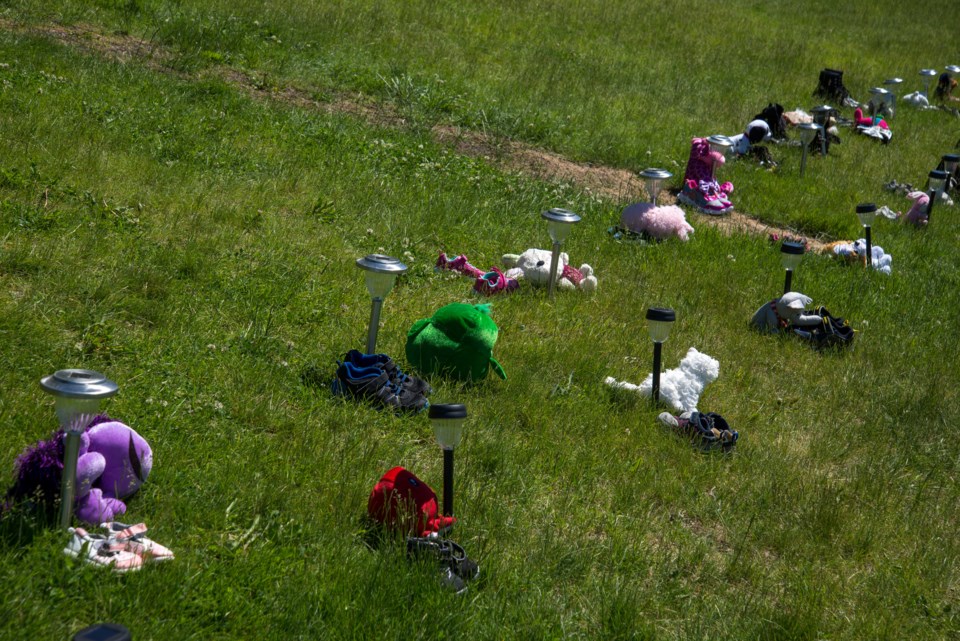The head of the National Centre for Truth and Reconciliation (NCTR) says residential school denialism promulgated in certain corners of the media is inhibiting reconciliation.
Executive director Stephanie Scott wrote a Sept. 29 article on the NCTR website described by APTN as a “clarion call to believe survivors of Canada’s residential and day schools” in advance of the third annual National Day for Truth and Reconciliation.
“Unfortunately, even as more and more Canadians engage in sincere acts of commemoration and reconciliation, the voices of those who minimize, distort and deny this history are also getting louder,” Scott wrote.
“National and international media outlets have given a platform to residential school deniers who – despite having no particular expertise on the subject – loudly reject the findings of the Truth and Reconciliation Commission of Canada and dismiss the lived experiences of survivors. The efforts of families to find the children buried at residential school sites have become a lightning rod for hatred.”
Kimberly Murray, an independent special interlocutor for missing children and unmarked graves, has noted the prevalence of online attacks against Indigenous communities who announce they’ve discovered potential unmarked graves.
Some denialists have reportedly entered the grounds where these sites are believed to be located in an attempt to disprove preliminary findings, Murray has noted.
In June, Murray said that denialists allegedly entered the site of the former Kamloops Indian Residential School, where the unmarked graves of 215 Indigenous children were believed to have been found, on Tk’emlúps te Secwépemc territory.
“Denialists entered the site without permission. Some came in the middle of the night, carrying shovels; they said they wanted to ‘see for themselves’ if children are buried there,” Murray wrote in a report outlining the barriers to searching for unmarked graves.
Denialism, said Murray, is the final phase of genocide.
“Denialism is violence. Denialism is calculated. Denialism is harmful. Denialism is hate,” she said. “Denialism is a non-Indigenous problem and therefore it’s for non-Indigenous people to address it.”
The dangers of residential school denialism, Scott wrote, “must be countered through a clear and unwavering commitment to truth-telling.”
She called on “governments to urgently consider legal mechanisms that can effectively combat these hateful actions.”
“For far too long, the truth of this shameful part of Canada’s history was kept hidden. Survivors were told to be silent,” Scott added.
Progress on this issue, including former prime minister Stephen Harper’s 2008 apology for residential schools and the Truth and Reconciliation Commission came as a result “of the courage of survivors and their steadfast commitment to the truth.”
Scott addressed the tide of denialism at the third annual National Day for Truth and Reconciliation ceremony on Sept. 30 in Ottawa, emphasizing the need to uplift survivors’ voices.
“We must respect all survivors, amplify their voice and call out the deniers,” Scott said. “We must challenge the people who don’t want to face the truth.”
The NCTR hosts a memorial registry of Indigenous children who were killed at residential schools, with 4,140 names as of writing.
“There are additional names of children waiting to be found that are not included within this register. There remains an extensive amount of work to be done to find all the children that never returned home and their burial sites,” the NCTR cautions.
Noting that the “burden of truth-telling should not be placed on the shoulders of survivors,” Scott urged all Canadians “to take time to review the register.”
“Think about the children and their families. Reflect on why this truth must not be denied or diminished. And champion these truths in your life and community, so that Canada will not falter or turn back on the road to reconciliation,” she wrote.



